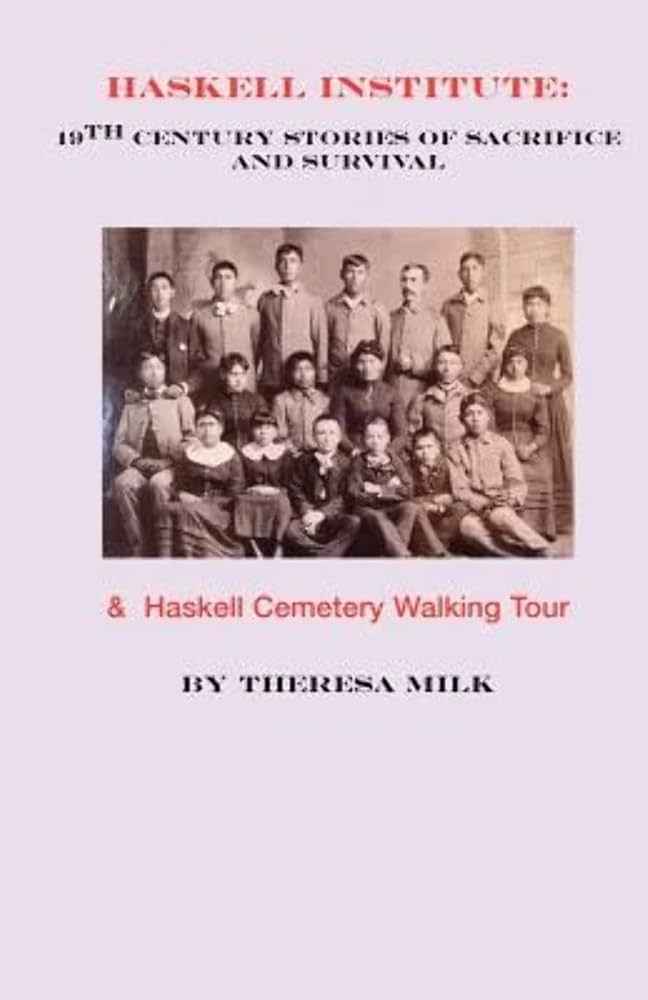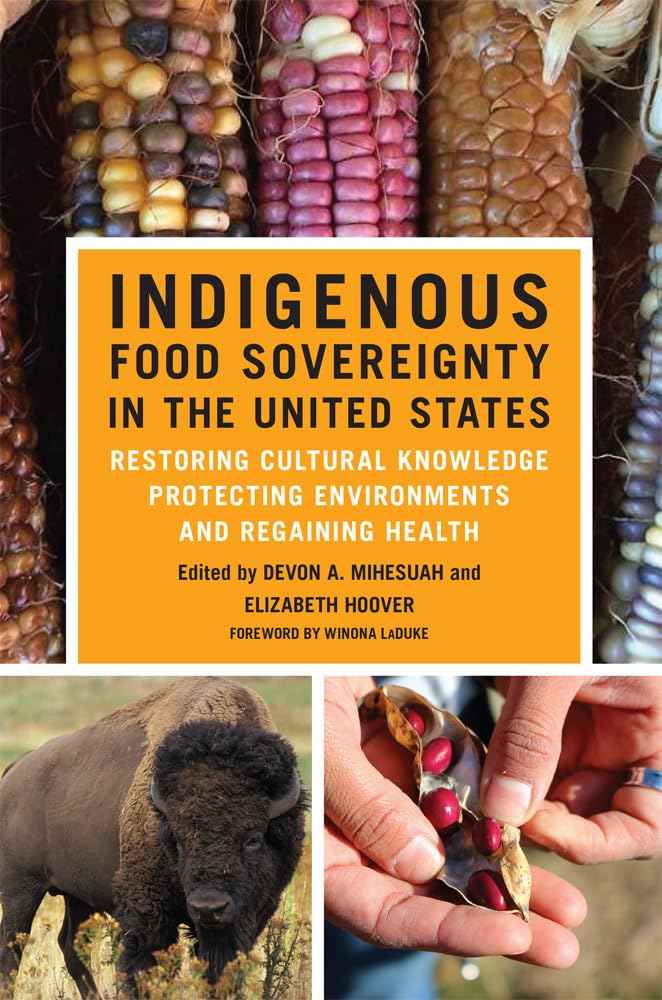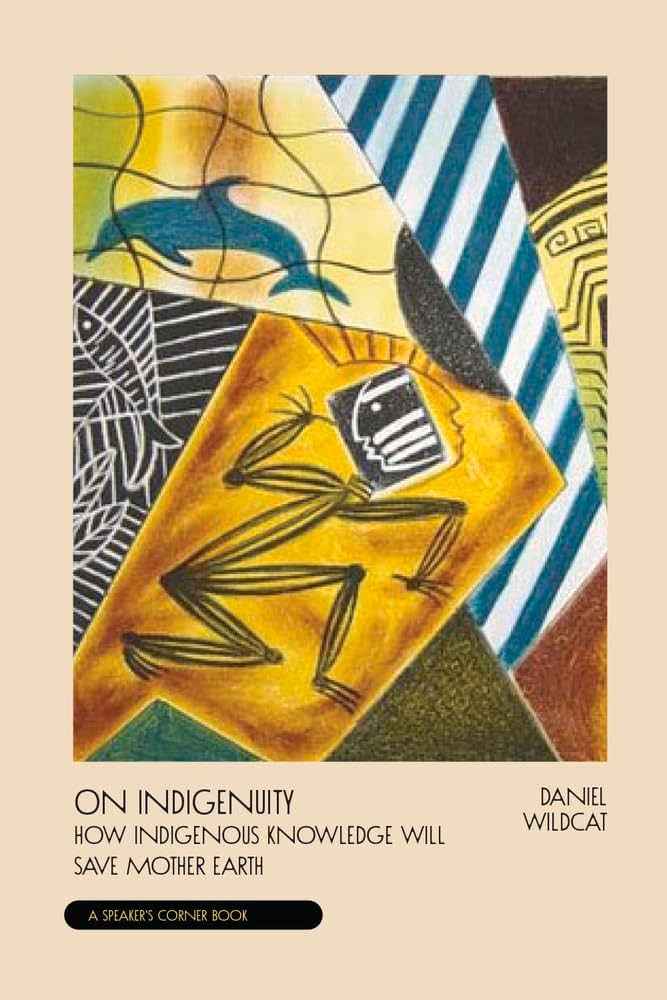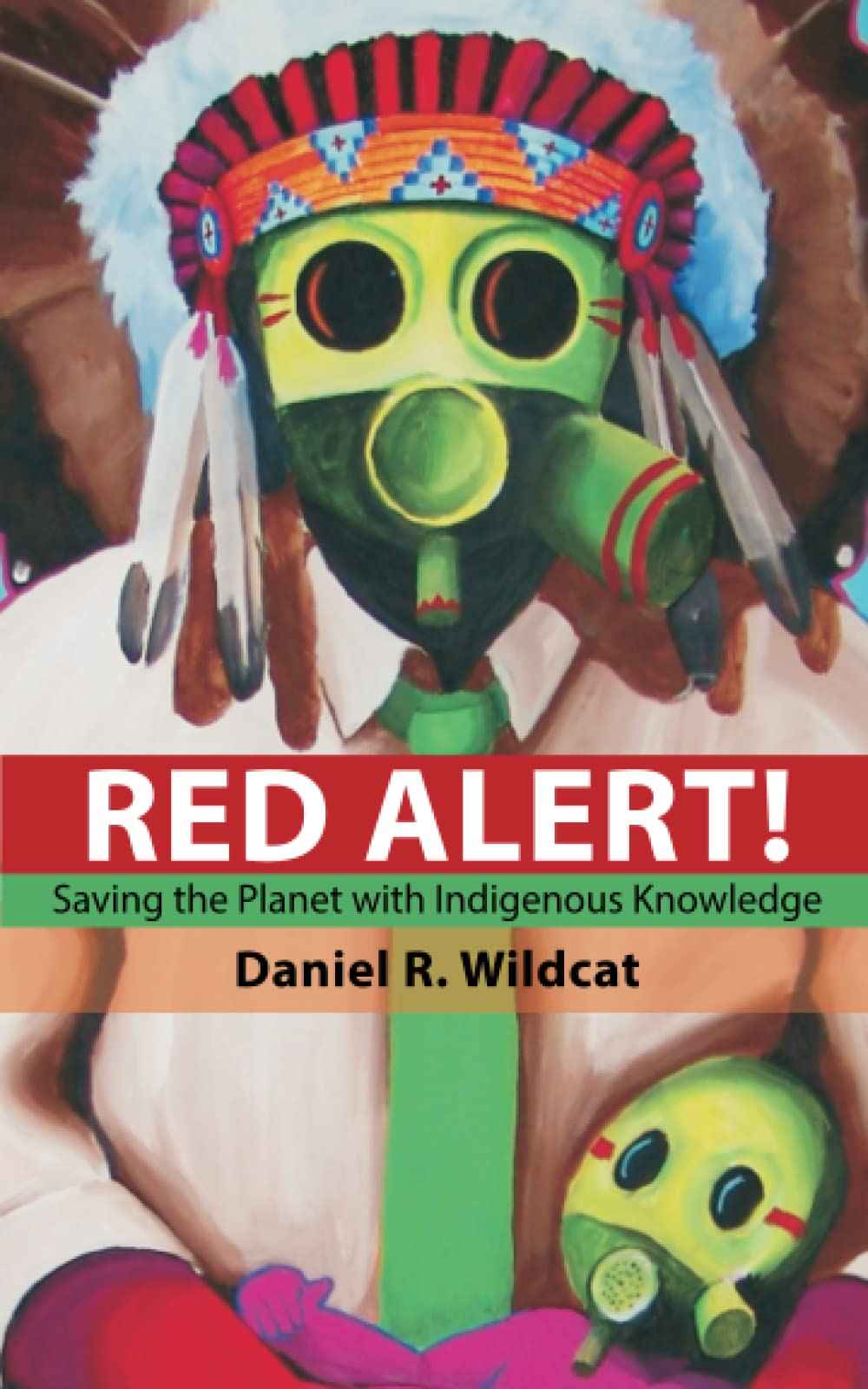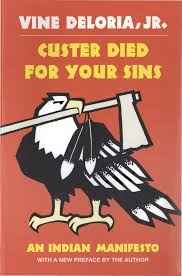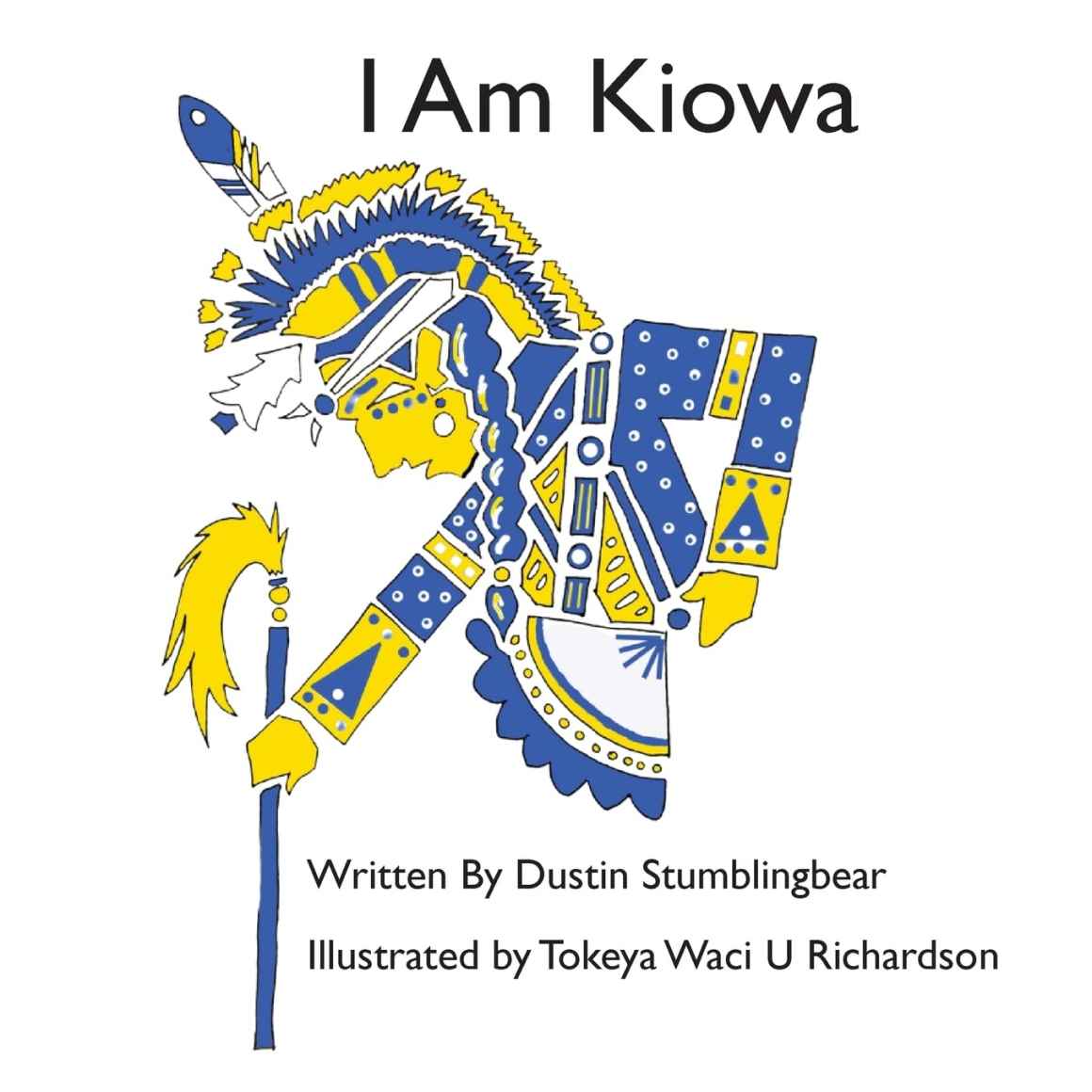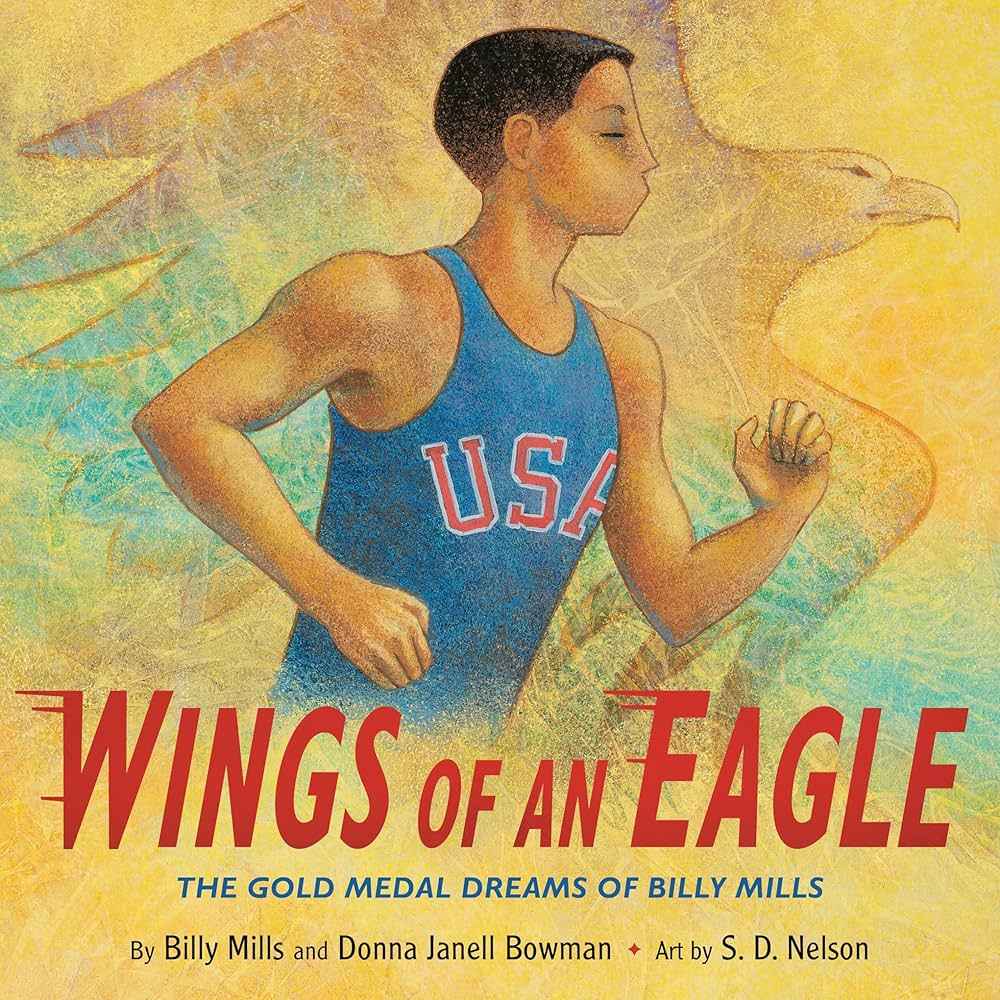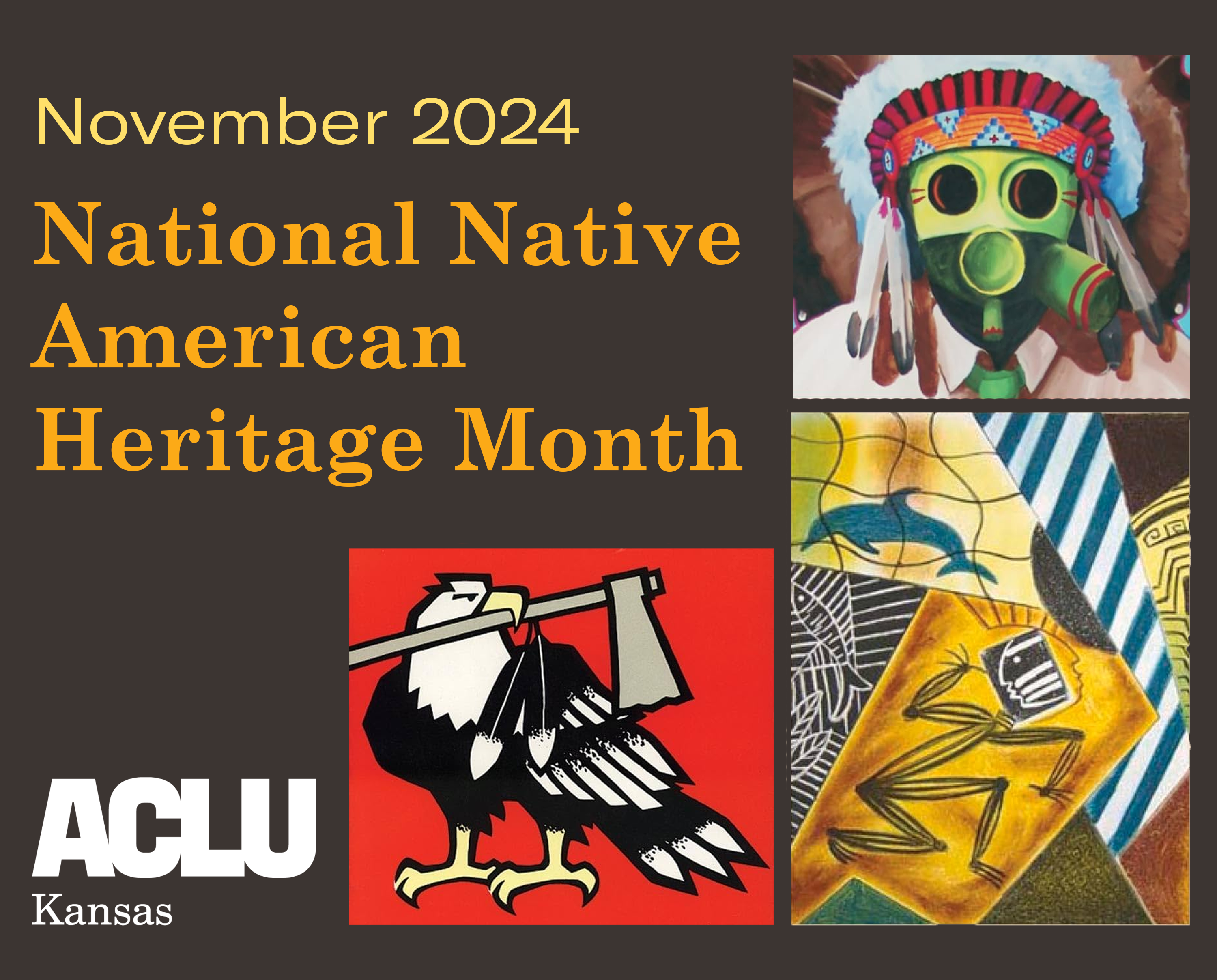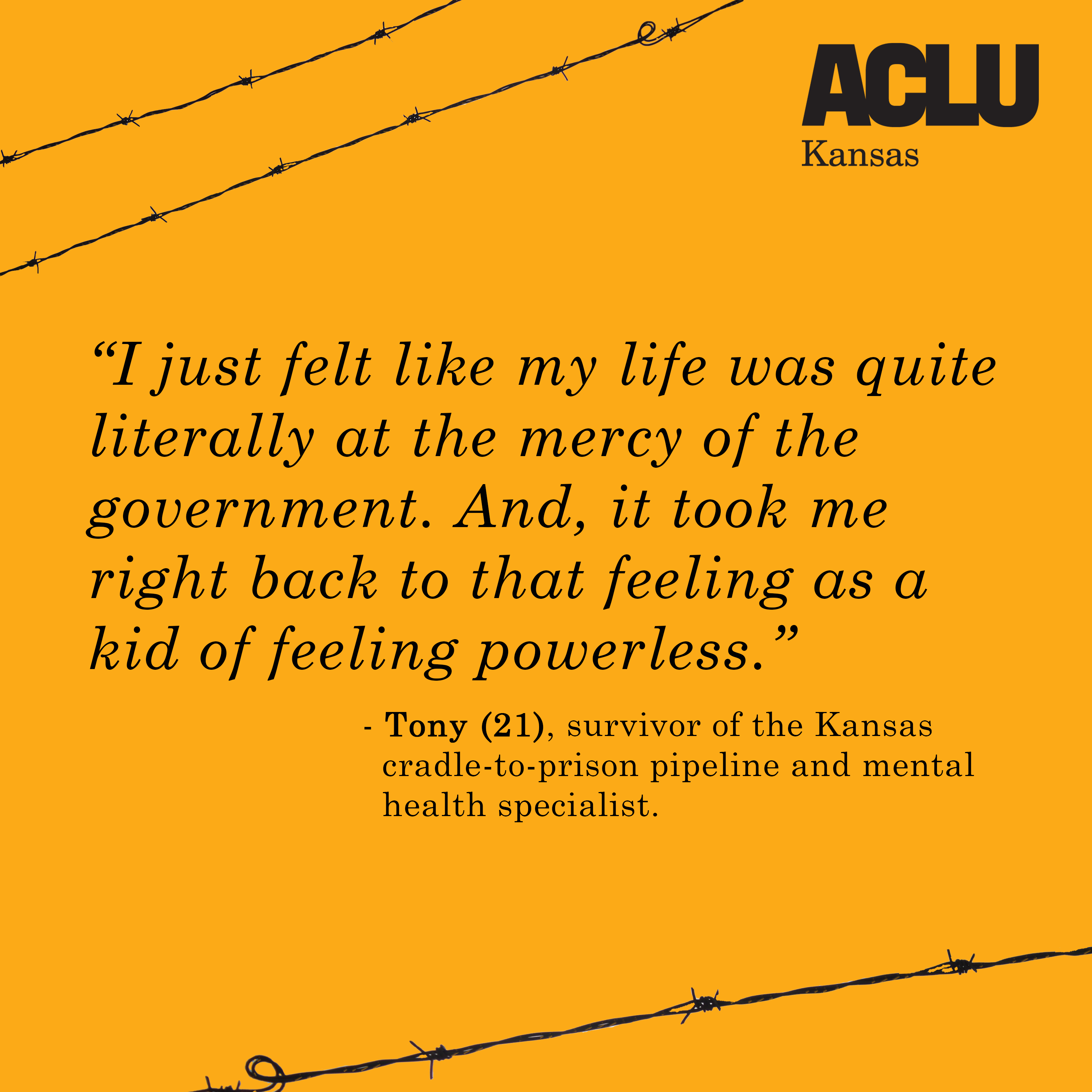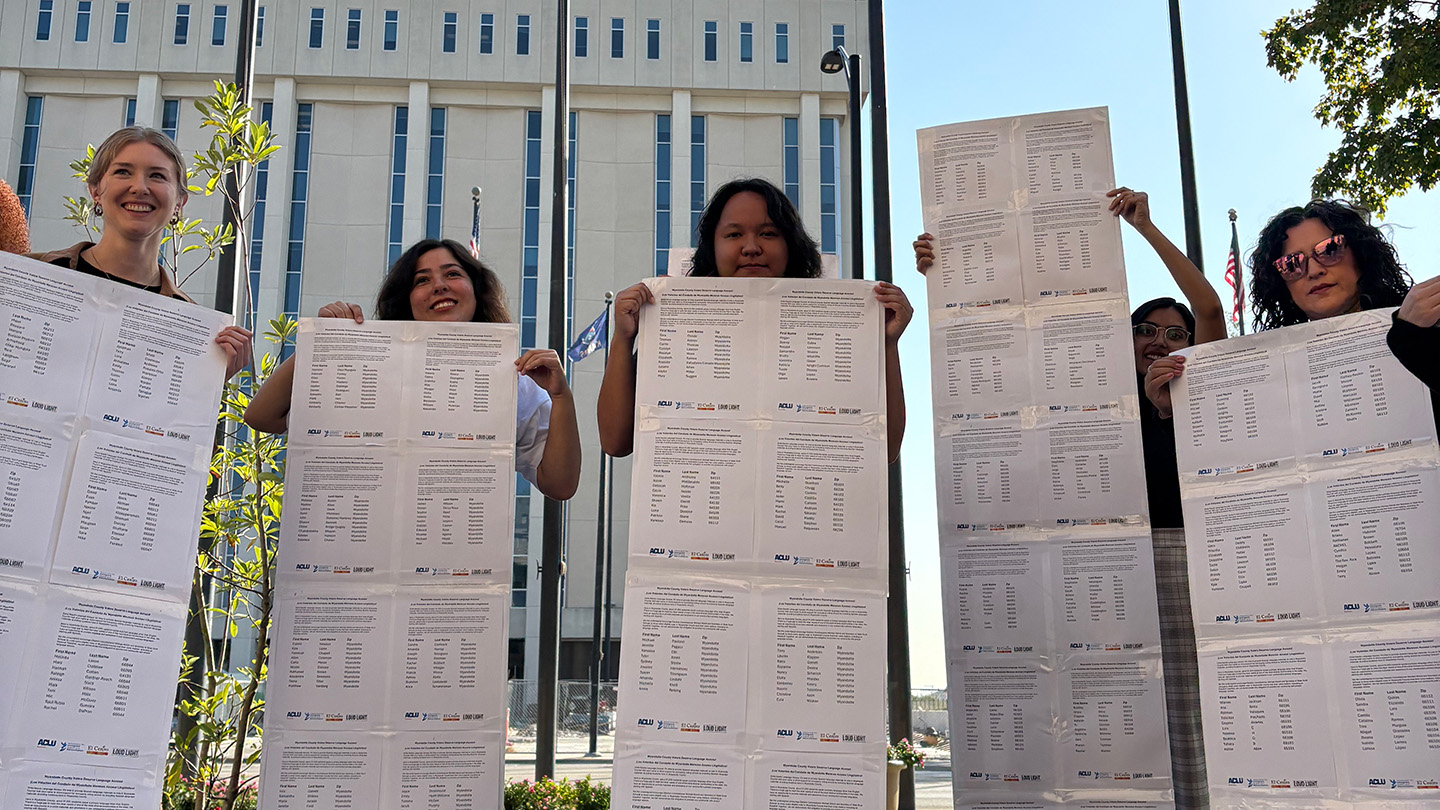November is National Native American Heritage Month. The US Department of the Interior’s: Indian Affairs describe this month as a time to “celebrate the traditions, languages and stories of Native American and Alaska Native communities and ensure their rich histories and contributions continue to thrive with each passing generation”. In honor and celebration of Native American Heritage month, ACLU of Kansas highlights some of the literature and authors that preserve Native Kansas culture and address Native Kansans’ futures. With special thanks to The Raven Bookstore, we have gathered a list of Indigenous Kansas authors and literature we would like to platform as recommended reading for all Kansans.
“Haskell Institute: 19th Century Stories of Sacrifice and Survival” by Dr. Theresa Milk
Description: Dr. Theresa Milk's HASKELL INSTITUTE: 19th CENTURY STORIES OF SACRIFICE AND SURVIVAL presents American Indian/Alaskan Native student stories from early days of Haskell, a federal boarding school founded in 1884. Milk takes a balanced look at the ordeals and successes of Native students as they struggled within a military, assimilationist educational envir0nment. Dr. Milk's new research-based on letters, newspaper articles, photographs, and government documents-emphasizes individual stories. This book draws on other researchers to give the overall background of Native boarding schools, but additionally adds texture of day-to-day life as experienced by individuals. Milk recovers lost histories. She uncovers the close ties between Haskell and the University of Kansas-Lawrence community. Early supervisors of Haskell included KU chancellor James Marvin and Lawrence resident Charles Robinson, Kansas state governor and abolitionist leader.
About the Author: Dr. Milk received her Associate of Arts and Bachelor of Arts degrees from Haskell Indian Nations University. In 2000, she was selected as an inaugural Gates Scholar, which allowed her to attend the University of Kansas School of Education for her Master’s degree and Ph.D. Dr. Milk taught English and American Indian Studies at Haskell until her recent retirement. (Bio from flclincoln.org)
“Indigenous Food Sovereignty In the United States” edited by Devon A. Mihesuah and Elizabeth Hoover
Description: Centuries of colonization and other factors have disrupted indigenous communities' ability to control their own food systems. This volume explores the meaning and importance of food sovereignty for Native peoples in the United States, and asks whether and how it might be achieved and sustained.
About the Editor: Devon Abbott Mihesuah is a Choctaw historian and writer. She is a former editor of American Indian Quarterly and an enrolled citizen of the Choctaw Nation. She is the Cora Lee Beers Price Professor in the Humanities Program at the University of Kansas. (Bio from wikipedia.org)
About the Editor: Elizabeth Hoover, Associate Professor in the Department of Environmental Science, Policy, and Management at UC Berkeley, is the author of articles about food sovereignty, environmental health, and environmental reproductive justice, as well as the book The River Is in Us: Fighting Toxics in a Mohawk Community. (Bio from Google Books)
“On Indigenuity: Learning the Lessons of Mother Earth” by Dan Wildcat
Description: Indigenuity, or Indigenous ingenuity, stems from an ancient idea and practice that Native peoples have engaged in for millennia. It was born of a careful mindfulness and attentiveness to our planet and all of its creatures, and a recognition that human experience is intertwined with all that surrounds us. As a society, we rarely pay attention to our land, air, and water, exacting a high price for all life on this planet. On Indigenuity is a call for us to learn a key lesson: it’s time to apply ancient Indigenous wisdom to solve modern problems.
“Red Alert!: Saving the Planet with Indigenous Knowledge” by Dan Wildcat
Description: What the world needs today is a good dose of indigenous realism, says Native American scholar Daniel Wildcat in this thoughtful, forward-looking treatise. Red Alert! seeks to debunk the modern myths that humankind is the center of creation.
About the Author: Daniel R. Wildcat is a Yuchi member of the Muscogee Nation of Oklahoma. His service as teacher and administrator at Haskell spans 37 years. In 2013 he was the Gordon Russell visiting professor of Native American Studies at Dartmouth College. Dr. Wildcat received an interdisciplinary Ph.D. from the University of Missouri at Kansas City. In 1994 he partnered with the Hazardous Substance Research Center at Kansas State University to create the Haskell Environmental Research Studies (HERS) Center.
“Custer Died for Your Sins: An Indian Manifesto (Civilization of the American Indian)” by Vine Deloria Jr.
(Not unique to Kansas but still a great read)
Description: In his new preface to this paperback edition, the author observes, The Indian world has changed so substantially since the first publication of this book that some things contained in it seem new again. Indeed, it seems that each generation of whites and Indians will have to read and reread Vine Deloria's Manifesto for some time to come, before we absorb his special, ironic Indian point of view and what he tells us, with a great deal of humor, about U.S. race relations, federal bureaucracies, Christian churches, and social scientists. This book continues to be required reading for all Americans, whatever their special interest.
About the Author: Vine Victor Deloria Jr. was an author, theologian, historian, and activist for Native American rights. He was widely known for his book Custer Died for Your Sins: An Indian Manifesto, which helped attract national attention to Native American issues in the same year as the Alcatraz-Red Power Movement. (Bio from Wikipedia.com)
Children’s Books:
“I Am Kiowa” by Dustin Stumblingbear
Description: “I am Kiowa” is the true story of a rambunctious 4th grader named Dustin Stumblingbear, his mother and brother going to a 5th grade class at Sunset Hill Elementary School and presenting elements of their Kiowa heritage.
About the Author: Dustin Stumblingbear, Kiowa, attended Haskell in the Summer of 1999. Originally from Tuscan, Arizona, he left the school to help take care of his son who lived in North Dakota (ND) at the time and felt it was too hard to balance the two and wanted to change his focus on his son who has ADHD and ODD (Oppositional Defiance Disorder). Stumbingbear returned to school, choosing to attend the University of Kansas in Fall of 2009 studying to become a Social Studies teacher. (Bio from The Indian Leader)
“Wings of an Eagle: The Gold Medal Dreams of Billy Mills” by Billy Mills, Donna Janell Bowman, S.D. Nelson (Illustrator)
Description: Billy Mills was once an orphan on the Oglala Lakota Pine Ridge Reservation. But before his father was called to the ancestors, he told Billy how to conquer his suffering: You have broken wings, son. You have to dig deeper, below the anger, the hurt, the self-pity. The pursuit of a dream will heal you.
Despite poverty, racism, and severe health challenges, Billy raced toward his goal of becoming an Olympic athlete, inspired by his indigenous ancestors who stood strong when the odds were against them. Though at times he felt like his wings were clipped—a lone bird falling from the sky—he adapted and overcame, finally earning his place at the 1964 Olympics.
This autobiographical tale of Billy Mills’s awe-inspiring flight to a record-breaking gold medal, breathtakingly illustrated by award-winning Lakota artist SD Nelson, is a soaring testament to Billy’s legacy and the Lakota prayer: we are all related.
About the Author: Billy Mills is an Olympic gold medalist, author, and cofounder of Running Strong for American Indian Youth, a nonprofit organization that supports the critical needs of Native communities. A member of the Oglala Lakota (Sioux) Tribe, he grew up on the Pine Ridge Reservation and now travels around the world inspiring audiences to embrace unity through diversity while learning from historical injustices. He lives near Sacramento, California.
About the Author: Donna Janell Bowman is an award-winning author of books for young readers, including Step Right Up: How Doc and Jim Key Taught the World About Kindness and Abraham Lincoln’s Dueling Words. Donna holds an MFA in writing from Vermont College of Fine Arts. When not writing, she enjoys speaking at schools, coaching other writers, and learning from inspiring people. She lives near Austin, Texas.
About the Illustrator: S. D. Nelson, a member of the Standing Rock Sioux Tribe in the Dakotas, is the author and illustrator of inspiring children’s books, such as Black Elk’s Vision and Grandma’s Tipi. Honors include an American Indian Library Association award and a Spur Award from Western Writers of America. He is a cofounder of Read at Home, encouraging early literacy among Indigenous children. He lives in Flagstaff, Arizona.
Special thanks again to The Raven Bookstore for helping us curate this list of amazing authors and Indigenous literature.
Date
Monday, November 18, 2024 - 11:15am
Featured image
Show featured image
Hide banner image
Show related content
Tweet Text
[node:title]
Type
Menu parent dynamic listing
Show PDF in viewer on page
Style
Standard with sidebar
Show list numbers
Author
Alina Matejkowski
Young men of color are disproportionately more likely to find themselves entangled in the criminal justice system. “African American children represent 32% of children who are arrested, 42% of children who are detained, and 52% of children whose cases are judicially waived to criminal court,” despite only making up 14% of the population (NAACP). While the numbers outline the disparities themselves, they don’t tell the full story of how these children ultimately find themselves in these positions to begin with.
The cradle-to-prison pipeline is defined as the embodiment of the “cumulative impact of multiple factors—beginning before birth and persisting through childhood, adolescence, and the teen years—that disproportionately diverts youth from communities of color toward incarceration,” (Cradle2Prison). It encompasses everything from the quality of healthcare you receive at your conception, to the quality of education you receive in your youth, to the structurally racist factors that ultimately lead to your incarceration and even death.
In September of this year, I sat down with a friend of mine to discuss the collateral effects of mass incarceration, how he found himself caught in the cradle-to-prison pipeline, and how he now works to disrupt the pipeline for the youth in his community.
Tony: “I’ve lived in Lawrence essentially my whole life. I was raised in a single-parent household for the majority of my childhood. Growing up, we were struggling. We were constantly just on the hunt for stability… I’d go to school and see all the fads all the kids had in elementary school. I would obviously ask my mom for that stuff when we’d be at the store, and it would always be, ‘do you have xyz type of money cuz we can’t afford that right now.’”
The cradle-to-prison pipeline is unique from other forms of structural racism because of it’s encompassing of all facets of inequality starting from even prior to when one steps foot into schools or even the world. When mapping out a general cradle-to-prison pipeline, patterns emerge. The constant hunt for stability described by Tony is one such pattern. Then Tony’s step-dad entered his life.
Tony: “My mom started dating another man who’s also African American like me… I was super stoked ‘cuz I was like ‘Heck yeah I have a dad, we can go play fetch and stuff now at the park, it’s gonna be great!’ Then I noticed, wow he's not making the right choices, however I still see him bringing money home. I still see him hanging out with his friends getting drunk having fun… I almost saw freedom when I looked at his actions.”
Alina: “That’s also a role model for you.”
Tony: “Exactly, it was my father figure, like I said biological dad never was really there for me. However, as much as he might have screwed up, my stepdad was always at my football games. He was always at my orchestra concerts.”
It was around this time that Tony and I were able to start our first real jobs together working as servers for a retirement home in town. We made $7.25 an hour with a cap at 19 hours a week. So, around sophomore year of high school Tony also began to deal drugs.
Alina: “I also think there needs to be something said about what it looked like. You were one of the only Black kids in a sea of white children all looking to you to be the plug.”
In Lawrence, KS, Black residents are four times more likely than whites to be arrested for marijuana possession, even though the two groups use the drug at about the same rates (ACLU, 2013).
Tony: “No absolutely… And I was aware of it too. Like I said I just didn’t care. I was making money, I could go out with my friends, I felt that freedom I saw in my stepdad when I saw him making bad decisions and through that I kind of felt that same freedom. For the first time in my life, I had no one telling me we couldn’t afford this, because it was my money… I felt untouchable, until… Until I found out that was absolutely not the case whatsoever.”
Around his sophomore year of high school, Tony’s stepfather was arrested again. This time he would be sent away for years.
Tony: “My stepfather dealt with more instability than I have in my life… it’s very easy to see how pushed into the lifestyle he was. He’s been gang affiliated, he’s also from a split-up home, he was raised by his grandma who wasn’t even actually his grandma, just a friend of a friend of a friend type situation, ya know. But since he’s been around probably 15, he’s been in and out of jails, in and out of prisons… All of which to say my stepdad had a pretty bad hand dealt to him with, not to say that justifies any of his actions, it’s simply the reality of the situation.”
Alina: “Yeah I also think that’s what we’re here to talk about is those hands that are being dealt and the uneven distribution of bad hands, and why those are specifically getting passed down through families?”
Tony: “Incarceration teaches you to develop habits, and so do a lot of the decisions, the things that are put in front of us even before the point of incarceration, such as the influences you grew up with, your home life in general, your support systems, things like that… I strongly believe a big part of the cradle-to-prison pipeline has to do with mental illness... There’s a lot of studies and research that shows mental [illness] has been skyrocketing in younger generations. My theory is that it’s not skyrocketing, it’s always been there, it’s just… wasn’t acknowledged especially in minority communities, especially in Black communities… If you tried to acknowledge it, all of a sudden you were gay or all of a sudden you were being a punk… And it adds, it compounds and eventually it explodes. I say all this because that’s what happened to my stepdad a year or two being out of prison.”
After struggling with alcoholism and mental health issues and becoming increasingly violent as a result, Tony’s stepfather was arrested part-way through Tony’s sophomore year of high school for attempted murder.
Alina: “I didn’t know any of that stuff was happening to you at the time.”
Tony: “I’ve always been good at not showing how much things are truly affecting me.”
The National Alliance on Mental Illness tells us that Black men are less likely to seek treatment for mental health services, “and when they do, they are more likely to receive inadequate care” (2023). Instead of addressing his trauma or attempting to seek treatment, Antonio made making money his priority.
Tony: “More than wanting materialistic items or like financial gain, the thing I was always looking for was stability. And that’s why I do things like my friends would invite me over for a weekend and I’d end up staying for like four days.”
Alina: “And I think that’s also a trauma response like you’ve had things taken from you, you’ve had people taken from you.”
Tony: “Right. And now I had more money than I knew what to do with. I was doing stupid stuff like grabbing ten of my friends and taking them to like fancy restaurants. It was bad. On top of that I was also smoking a lot, my judgement was severely impacted at this point in life. Obviously, my grades suffered. A big catalyst for things playing out in my life, [was what happened with] solo/small ensemble state contest...”
Tony and I became close because of our mutual love for the violin. At this point in time, when high school students were preparing their college applications, musicians like Tony were preparing for the state orchestra competition where receiving a high score could make the difference between accessing higher education or not. After months of auditioning just to be selected to compete at state, Tony got two of his ensembles approved. The next week, school and all related activities were cancelled due to Covid. Tony never applied for his orchestra scholarship.
Tony: “It was just crushing… And after that, I didn’t care, I basically became my stepdad for about a year and half.”
In 2020, Tony was pulled over on k-10 while driving with a buddy. They had marijuana in the trunk of their car to smoke with friends later.
Tony: “The first thing [the officer] does before looking at [my registration and ID] is he pulls me out of the car and pats me down… Then he ran my license and registration after he puts me in [his police] car and [said]: ‘Wow! You don’t have any warrants!’… I was in jail for about 23 hours. However, it’s probably like the longest 23 hours I’ve ever dealt with. Just because like on top of like the fact I was in jail which already sucks, I felt the pressure of letting down my mom, letting down my teachers, all the mentors I’ve had in my life who knew I could do better.”
It wasn’t until after getting out of jail and completing probation that Tony began to re-examine the culture that brought him to that point.
Tony: “Before I got arrested, I was super angry at the world… past my dad and stuff, like I said I had really bad depression, I wasn’t handling well at the time…. While I was in jail, I was telling my story to a security guard, and they were like ‘Yeah sounds like another white cop that’s trying to meet a quota to me’ and I was like ‘Damn, y’all work for this organization and think that. That is crazy.’ And that really sunk in. I got out and I was even more mad at the world, because on top of all the pre-existing feelings I never dealt with, I was now faced with the fact that all the money I had saved up is gone because now I have court fees, and lawyers to pay for. State mandated drug testing that I had to pay for… And I had also just started a new job, so I was just like terrified I’d get fired. It was just a lot... For like the duration of my probation essentially, if I wasn’t just shouting at the clouds, I was just waking up in the middle of the night from nightmares... I would get these nightmares where I’d be at a party and someone would pass me a joint and I would smoke it and I’d wake up in a cold sweat, I have a drug test in the morning. I just felt like my life was quite literally at the mercy of the government. And, it took me right back to that feeling as a kid of feeling powerless.”
It was around this time that Tony realized that the feelings of powerlessness he felt as a kid and now as an adult weren’t the result of one bad apple, one racist experience, or one factor of his identity, but the systemic culmination of political and economic factors.
Tony: “I always had known there was a problem, I just had never taken the steps to address it. And so, after probation I started working [as a Behavioral Health Specialist] and I quickly learned, just from working with the kids and also interacting with the staff, and just hearing so many different stories, I realized I had the power to be the role model I never had as a kid… Not to say there aren’t days where I’m just shouting at clouds because there absolutely are. However, when those days come, I feel less alone, and I also feel more driven, because it makes me feel like my job needs to be that more important to me.”
Ulices Rodriguez, Dan Losen, Director of the CCRR at The Civil Rights Project at UCLA, describes the dismantling of the cradle-to-prison pipeline as a slow, “gradual process”. He goes on to say that one such way we can begin to replace the pipeline we see today is by “undoing some of the structures, the ways we do business, the ways we distribute resources”. In Midwest schools, we can still see the residual effects of de jure segregation in our communities where Black teachers were forced out of their positions to mitigate the appearance of “white flight” in our public schools. Part of Tony’s work now is undoing that systemic harm simply by being in the school. For some of these kids, it’s their first time being comfortable enough to ask for help through the school system from someone who looks like them. By working through a local mental health center, Tony feels like he’s able to impact the same system he found himself in from a position of power he once believed to be unattainable.
Tony: “It’s important for them to have Black role models.”
Today, Tony now shares the tools he’s gathered in his escape from the cradle-to-prison pipeline with his youth clients in hopes of mitigating the factors that often pull children into the pipeline in the first place.
Tony: “I feel like Master Splinter handing my Ninja Turtles their weapons, having them dawn their shells for protection… It’s my job to teach these kids that they can be better than I ever had a chance of being.”
Date
Tuesday, October 15, 2024 - 10:15am
Featured image
Show featured image
Hide banner image
Show related content
Tweet Text
[node:title]
Type
Menu parent dynamic listing
Show PDF in viewer on page
Style
Standard with sidebar
Show list numbers
Author
Alina Matejkowski
For 18 months, Wyandotte County community members and local organizations have called on Election Commissioner to make voting easier for voters who speak a primary language other than English.
This week, Mayor Tyrone Garner and Unified Government Commissioner Melissa Bynum joined them, and we delivered a petition signed by over 1,000 people calling on Secretary of State Scott Schwab and Election Commissioner Michael Abbott to provide multilingual voting materials.
It’s extraordinary that Abbott doesn’t already provide multilingual voting materials. In Wyandotte, where over 50,000 residents speak a primary language other than English, numerous government agencies, businesses, and public accommodations provide translated signage and other materials.
Ballots can be confusing even if English is your first language—by providing materials in Spanish Schwab and Abbott can prevent people from relying on undependable sources for help deciphering the materials or worse, not voting at all.
While Commissioner Abbott has taken the first steps of translating parts of the website, he has at the same time expressed the concern that providing Spanish materials would mean groups that speak other languages might file lawsuits.
Let’s dispel this falsehood: counties across the country voluntarily offer Spanish voter materials or bilingual election workers, including nine other Kansas counties.
Meanwhile, there has not been a single local or national example of a lawsuit over providing this language access, much less one where a court ruled against providing this access.
What we have seen is that with better language access comes an increased ability for eligible voters to participate, and a benefit for election officials who are better able to improve compliance with the Voting Rights Act.
It’s exciting that Mayor Garner and other elected officials are advocating for their constituents by advancing a resolution in support of language access. But the ultimate decision is in the hands of Secretary of State Scott Schwab, who appoints the Wyandotte Election Commissioner.
Join the movement and tell Schwab and Abbott that Wyandotte needs language access.
Our democracy is strongest when every eligible voice is heard. Help make that happen in Wyandotte County.
Date
Thursday, October 10, 2024 - 9:15pm
Featured image
Show featured image
Hide banner image
Related issues
Voting Rights
Show related content
Tweet Text
[node:title]
Type
Menu parent dynamic listing
Show PDF in viewer on page
Style
Standard with sidebar
Show list numbers
Author
Jesse Kielman
Pages
